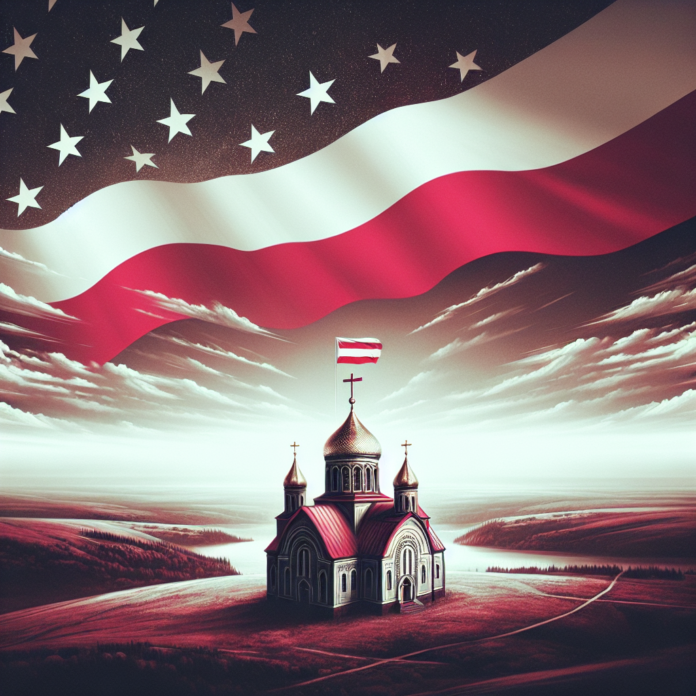When Nationalism Overpowers Faith: MAGA’s Grip on Catholicism
In recent years, there has been a noticeable shift within certain factions of the Catholic Church in the United States, marked by an unsettling coalescence of nationalism and traditionalism. A subset of the faithful, driven by the ideologies encapsulated in the Make America Great Again (MAGA) movement, seems increasingly to place national identity above religious principles, creating a dissonance in a faith that has historically transcended borders and ethnicities.
The phenomenon of conflating religious fervor with nationalist sentiment is not unique to contemporary America. History is replete with instances where religious institutions have been swayed by political movements—often to their detriment. Examples abound, from the complicity of segments of the German Lutheran Church during the rise of Nazism to the intertwining of state and church in Francoist Spain. In each instance, the fundamental tenets of the faith were overshadowed by political expediency, leading to moral and spiritual compromises.
Today, the MAGA movement presents a modern iteration of this troubling trend. Driven by a mixture of nostalgia for a perceived golden age, fear of demographic changes, and resistance to progressive social norms, some American Catholics have embraced the movement’s ethos wholeheartedly. For these individuals, the Latin Mass—a traditional form of liturgy celebrated in Latin—has become emblematic of a resistance to change. Though beautiful and steeped in history, the Latin Mass is increasingly wielded as a weapon against the inclusive reforms championed by Pope Francis and the Second Vatican Council.
Pope Francis has worked tirelessly to bring a more compassionate and inclusive spirit to the Church. His emphasis on mercy, environmental stewardship, social justice, and dialogue with other faiths seeks to address the complexities of the modern world. Yet, his reformist vision has encountered significant resistance from traditionalist quarters, particularly those influenced by the nationalist rhetoric of MAGA. This resistance is symptomatic of deeper issues within the Church, reflecting a struggle over its identity and future direction.
The Latin Mass, for some, symbolizes a longing for a bygone era—a time when the Church’s authority was less questioned, and its teachings were followed without dissent. It harkens back to a pre-modern world, one untouched by the Enlightenment, industrialization, and the subsequent waves of social change. This romanticized vision, however, overlooks the less savory aspects of that era—such as the exclusion of significant parts of society, from ethnic minorities to women. The current push to restore this form of worship often appears less about genuine spiritual enrichment and more about resisting progressive reforms within the Church.
By juxtaposing nationalism and traditionalism, the proponents of this movement seek to assert a form of Catholic identity that is inseparable from a certain vision of Americanism. This vision, however, stands in stark contrast to the universalist ethos that Catholicism has espoused for centuries. To be Catholic—derived from the Greek word katholikos, meaning "universal"—is to affirm a faith that transcends geographic and cultural boundaries. When nationalism encroaches upon this universalism, the faith loses its inherently inclusive character.
Pope Francis’s approach has been to re-center the Church’s focus on its global mission, emphasizing unity in diversity. His encyclicals, such as Laudato Si’ and Fratelli Tutti, call for a greater solidarity with the marginalized and a commitment to addressing global inequalities. For many within the traditionalist-MAGA coalition, however, this agenda is seen as an unwelcome departure from a focus on doctrinal rigidity and cultural preservation.
It is vital, then, to distinguish between genuine spiritual conservatism and the reactionary ideologies that sometimes masquerade as such. Traditional spiritual practices and theological conservatism have their place within the broad spectrum of Catholic life. However, when these elements are weaponized to serve a nationalist agenda, they distort the very foundation of the faith. The insistence on a single liturgical form, or the elevation of national identity above the Church’s universal mission, only serves to fragment the community of believers.
Catholicism’s enduring strength lies in its ability to navigate diverse contexts while maintaining a core set of values and beliefs. The Church has survived—and often flourished—by adapting to unprecedented challenges, from the fall of empires to the rise of secularism. In this spirit, it must also address the current challenge posed by the fusion of nationalism and religion.
The future of the Church in America, and indeed worldwide, hinges on its ability to embrace the inclusive and progressive vision set out by leaders like Pope Francis. This vision does not discard tradition but reinterprets it through the lens of contemporary realities. It seeks to build bridges rather than walls, to welcome rather than exclude, and to speak truth to power rather than conform to it.
In conclusion, for Catholicism to remain a vibrant and universal faith, it must resist the siren song of nationalism that threatens to drown out its foundational message of love, justice, and universality. By doing so, it can reclaim its prophetic voice and continue to be a beacon of hope in an increasingly divided world.
